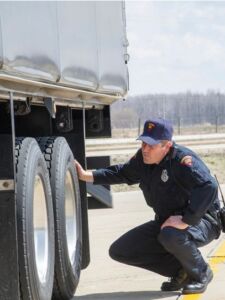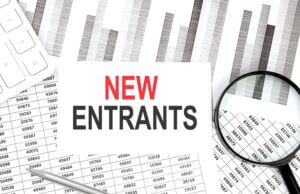PERIODIC INSPECTION TRAINING (PIT)

- MTA Member: $395
- Non-MTA Member: $495
Other 2026 dates
- August 20
- November 12
May 21
9:00 am-3:00 pm
Registration deadline May 11 @ 5:00 pm
MTA developed its exclusive Periodic Inspection Training (PIT) course to help satisfy the FMCSA requirement that a "qualified" individual includes a mechanic or technician that has participated in a state-sponsored training program.
This class is not intended for mechanics with less than one year of work experience
Course Objectives
- Understanding inspection criteria for required parts and accessories
- Reviewing 49 CFR Part 396 Appendix A minimum periodic inspection standards
- Comparing North American Uniform Vehicle Inspection Procedures and 49 CFR Part 396 Appendix A
- Contrasting Commercial Vehicle Safety Alliance (CVSA) Out-of-Service-Criteria with the FMCSA annual inspection
- Understanding periodic inspection paperwork
Materials Provided
- Exclusive MTA Periodic Inspection Training manual
- CVSA North American Out-of-Service Criteria guide
- Individual certificate of completion
- Individual verification of annual inspector qualification training for audit purposes
CUSTOMIZED HAND-ON CARGO SECUREMENT

- MTA Member: $175/person
- Non-MTA Member: $350/person
| This hands-on training is customized for your loads using your equipment. An MTA instructor will visit your location to teach your drivers both state and federal cargo securement regulations and how to secure your specific cargo properly. |
Course Objectives
- Better understanding of how to stay in compliance with cargo securement regulations
- Containing, immobilizing and securing the specific commodities you haul
- Inspect a secure load for compliance with regulations
- Prevent crashes and incidents involving cargo securement
Materials Provided
- PowerPoint Handout
- MCTS Truck Driver’s Guidebook
For more information and to schedule training, please contact Safety Specialist Brett Black:
- 800-682-4682 x 225
- cell: 517-512-9033
- bblack@mcddmitrucking.org
NATMI INDUSTRY CERTIFICATIONS/TRAINING
The North American Transportation Management Institute (NATMI) exists to improve the performance and productivity of the professionals directly responsible for effective fleet and driver performance – risk managers, safety and security directors, maintenance managers and commercial driver trainers.

Certified Safety Director/Safety Supervisor (CDS/CSS)
2026 Date TBD
Experience
- Five years in the motor fleet safety field or,
- Four years in the motor fleet safety field with a 4-year college degree or with 5 years CMV Enforcement experience (see stipulations in the “Certification FAQs” section of the website)
Candidates must serve as full-time administrators demonstrating their capability of handling a position which involves establishing programs and policies, setting standards, developing materials, and providing leadership to achieve the goals set.
Within 60 days of taking the certification exam, applicants must complete a certification application providing performance data correlating to the years of experience required.
If the experience requirements are met, the required courses taken, exam is passed and application approved, the candidate will be granted the Certified Director of Safety (CDS) designation.

Certified Maintenance & Equipment Director/Maintenance Supervisor (CDME/CSME)
2026 Date TBD
Course Description: The program covers topics essential to effective management and administration of fleet maintenance operations. Students learn how to cut costs through efficient use of personnel, equipment, and technology, while complying with government regulations affecting maintenance operations.
- Introduction to Fleet Management: purpose and fundamentals of fleet maintenance management, the role of the fleet maintenance manager, and the skill sets and personality traits that help a manager succeed.
- Maintenance and Repair Strategies: the main categories of maintenance, the benefits of planned maintenance, and legal requirements for maintaining vehicles; the three types of planned maintenance; unplanned repairs and failure analysis.
- Maintenance Technology: Issues to consider when implementing fleet maintenance software in your shop. Overview of Vehicle Maintenance Reporting Standards (VMRS) and asset codes.
- Laws and Regs: regulations shop managers need to know, including key Federal Motor Carrier Safety Administration (FMCSA), Occupational Safety and Health Administration (OSHA), and Environmental Protection Agency (EPA) regulations, as well as the Commercial Vehicle Safety Alliance (CVSA) Out-of-Service Criteria.
- Budgeting: developing a maintenance department budget, different categories of expenses, and determining cost-per-mile or cost-per-hour.
- Human Resources: Hiring effectively, complying with labor laws, and evaluating and coaching for performance improvement.
- Training: benefits of training, identifying training needs, implementing effective training programs, evaluating training quality, and tracking employee training progress.
- Specifications and Purchasing: the process of determining what your fleet needs, then bidding out and purchasing the needed equipment.
- Warranty: the importance of warrantees and how to make the most of them.
- Shop Operations: maximizing staff operations, including staff and equipment utilization, productivity and performance management.
- Shop Audits: the process of auditing your shop operations and practices.
- Shop Design: important considerations for designing and building a fleet maintenance facility; shop design best practices; and fuel station planning.
FREE TRAINING

Other 2026 dates
- April 16
- May 21
- June 18
- July 16
- August 20
- September 17
Truck Driver Defensive Driving Training
Virtual only -- March 19
9:30 am- 1:30 pm
Deadline March 13 @ 12:00 pm
While free and virtual only, pre-registration is required
Developed and certified by the National Safety Council, this FREE interactive course equips professional truck drivers with proven defensive driving strategies to help prevent collisions and improve safety awareness on the road.
Through four sessions, participants build on key safety concepts using real-world examples, discussion, and video-based learning. All content aligns with U.S. Department of Transportation standards and includes the latest CDL-relevant information.
What You’ll Learn:
- Core defensive driving concepts
- How to identify and prevent collisions
- Personal responsibility and protecting others on the road
- Hazard recognition and response
- The three key collision factors: driver, vehicle, and conditions
- Managing light, weather, road, and traffic conditions
- Making safe and legal driving decisions
After the class, you will receive a National Safety Council Certificate of Completion.
While free and virtual only, pre-registration is required

Other 2026 dates
- May 18
What to Expect During a Roadside Inspection
Virtual only --March 23
10:00 am- 11:30 am
Deadline March 19 @ 5:00 pm
While free and virtual only, pre-registration is required
This class discusses what a commercial motor vehicle driver should expect during a roadside inspection
Key points include:
- What draws attention to a vehicle
- What draws attention to a driver
- Understanding the Federal Motor Carrier Safety Regulations and Michigan Motor Vehicle Code
- What is probable cause?
- Types of inspections
- What to expect from the officer’s approach and interview
- Officer do’s and don’ts
- Preparation and organization of vehicle documents
- What types of violations will get a driver placed out of service
- What constitutes an out-of-service defect
- What is the Commercial Vehicle Safety Alliance?
While free and virtual only, pre-registration is required.

New Entrant Management Training
Virtual only -- April 20
10:00 am- 1:00 pm
Deadline April 16 @ 5:00 pm
While free and virtual only, pre-registration is required
This training provides educational and technical assistance to the new CMV carrier to ensure they are following applicable Federal Motor Carrier Safety Regulations in the event of civil and criminal liability suits, safety audits, or compliance reviews.
Key points include:
- Pre-employment, post-accident, random, and reasonable suspicion drug/alcohol testing
- CDL classes, endorsements and restrictions
- Disqualification of drivers
- Safety fitness procedures, safety audits and failures, and compliance reviews
- Minimum insurance requirements
- Biennial MCS-150 updates
- Accident record files
- Driver files with required information
- Hours of service rules
- Vehicle maintenance files
- IFTA, UCR, and IRP requirements
While free and virtual only, pre-registration is required.

Other 2026 dates
- April 16
- May 14
Driver Perfomance Measurement
In-person driver evaluation
March 17
Three time slots available:
- 9:00 am-11:00 am
- 11:30 am- 1:30 pm
- 2:30 pm-4:30 pm
Deadline March 16 @ 12:00 pm
An MTA Safety Specialist will ride along with your driver on a specific route, observing and evaluating their driving habits and behavior. The driver and company official will then receive a synopsis of the observed habits, with an assessment of whether their driving behaviors will increase or decrease the likelihood of a collision.
All participating drivers must hold a CDL or a chauffeur's license.
Each ride along is approximately 2 hours; 3 different time slots are available on a first-come, first-served basis.

Reasonable Suspicion Supervisor Drug & Alcohol Training
Virtual only -- March 25
Deadline March 23 @ 5:00 pm
While free and virtual only, pre-registration is required
Other 2026 dates
- June 10
- September 16
This training satisfies the Federal Motor Carrier Safety Administration's (FMCSA) mandatory supervisor training requirements: Employers must provide at least 60 minutes training each on both alcohol and controlled substances misuse to all persons who supervise drivers in accordance with 49 CFR §382.603.
This concise program covers crucial aspects, including DOT regulations, identifying signs of substance abuse, communication techniques, documentation, and the supervisor's role in the testing process.
This course also includes Alcohol and Drug Clearinghouse training. As mandated by FMCSA, the Clearinghouse is a critical tool for ensuring the safety and compliance of commercial drivers. Participants will gain insights into Clearinghouse registration, reporting requirements, query processes, and the impact on hiring practices.
